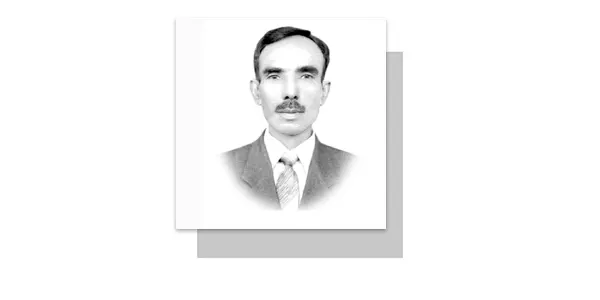EVERY year, people of Pakistan celebrate the 23rd of March as the Pakistan Day, with great enthusiasm and zeal. But, this time, this very day has come at a time when Pakistan is facing multi-faceted internal and external challenges, which are worrying all the citizens. Analysts agree that in the post-election scenario, Pakistan’s multiple crises and challenges would increase and the stakes for the new coalition government would be enormously high. The most immediate task for the government would be to negotiate a new bailout agreement with the IMF, which has started, as the country has to seek a new loan to repay billions in debt due this year to avoid a default and to stabilise the economy.
With the support of other parties, especially PPP, Shehbaz Sharif, leader of the PML-N secured a comfortable win over the PTI and the Sunni Ittehad Council backed by the PTI—also choosing PTI leader Omar Ayub as the opposition leader. The newly elected National Assembly met for the first time with lawmakers taking oaths amid protests on the floor of the house by supporters of the Sunni Ittehad Council and PTI. Similar practice continued in the provincial assemblies on various occasions. PML-N, PPP and some other political parties also asked the PTI for cooperation to achieve political stability. But, the PTI leaders refused any such collaboration—alleged rigging in the elections.
Chief of JUI-F (party) Maulana Fazl-ur-Rehman who joined the opposition alliance announced to organize a nationwide movement against the alleged vote rigging, accusing the establishment of it. Question arises if elections were rigged or establishment interfered against the PTI as to how independent candidates, most loyal to Imran Khan, swept the polls in KP province by winning 91 out of 113 provincial seats, and PTI leader Ali Amin Gandapur was elected as the chief minister. Notably, military’s media wing ISPR said in a statement that the Corps Commanders’ Conference held on March 5, 2024, chaired by Chief of Army Staff General Syed Asim Munir, pointed out that army provided a security environment for the conduct of the general election 2024 as per the given mandate—attackers of military installations on May 9, 2023 would certainly be brought to justice—the forum expressed dismay that some vested segments of polity and media, had been maligning the armed forces with unsubstantiated allegations of interference.
Next day, in an informal conversation with media representatives during the hearing of a case inside Adiala Jail, the founder of the PTI Khan who was openly criticising army in the past, took a U-turn, and stated that the PTI was not against the army and emphasised that the criticism over election rigging was not the criticism of the army. He stressed that without political stability, the country could not function. Besides, in a surprise development, Chief Minister of KP Ali Amin Gandapur on March 14, this year met Prime Minister Sharif and was satisfied with his first engagement with him, terming it as positive. Gandapur stated that during the meeting, he stressed on the need to hold political dialogue with PTI founder Imran Khan, which will lead to a political solution.
Contradictorily, PTI workers continue protest-rallies against the rigging in elections, while PTI has also filed cases in the courts in this respect—also about forms 45 and 47. At this critical hour, Pakistan’s armed forces have been coping with internal and external challenges of grave nature in order to maintain the security of the country. In one way or the other, Indian fanatic rulers are also escalating tensions with Pakistan. In this context, the country is facing the challenge of hybrid war. Former Chief of the Army Staff Gen. Qamar Javed Bajwa and Chief of Army Staff Gen. Syed Asim Munir have frequently stated that Pakistan’s armed forces are fully ready to meet any Indian prospective aggression.
Some internal entities have been distorting the Army’s image in such a way that the general masses should forget the sacrifices and services of the armed forces. However, it was due to the selfless practical unity among the Muslims under the leadership of Quaid-i-Azam that Pakistan became a tangible reality on August 14, 1947. But, that unity started declining after passing through various crises, and the result was separation of East Pakistan in 1971, as India manipulated differences between East Pakistan and West Pakistan. Now, more than three and half months have passed. But, the Indian fanatic government led by the extremist PM Narendra Modi continued military lockdown in the Indian Illegally Occupied Jammu and Kashmir (IIOJK). Modi continues anti-Muslim and anti-Pakistan policies.
And in the recent past, terrorist attacks particularly in the provinces of Khyber Pakhtunkhwa and Balochistan which is central point of the China-Pakistan Economic Corridor (CPEC) show that the CIA-led Indian RAW want to damage the CPEC project which is part of China’s OBOR or BRI, as the US and India have already opposed this project. Nevertheless, the 23rd of March 1940 was a watershed in the history of the Sub-continent, when the All India Muslim League passed the Resolution in Lahore for the creation of an independent state. Now, it is popularly called the Pakistan Resolution.
Earlier, in his address to the Muslim League at Allahabad in 1930, the idea of a homeland for Muslims in their majority areas had been envisioned by the poet Allama Sir Muhammad Iqbal, and had become the aspiration of Indian Muslims. Prior to the Lahore session of Muslim League, Quaid-i-Azam Muhammad Ali Jinnah had specified to this historical congregation of the Muslims, the watch-words of ‘Faith, Unity and Discipline’ which were not only necessary for waging the battle for an independent homeland, but also for present Pakistan. Nonetheless, the government, the opposition leaders, including all other segments of society must act upon the essence of the Pakistan Day by showing selfless national unity which is very necessary to pull the country out of the ongoing serious crises.
—The writer is a contributing columnist based in Lahore.









